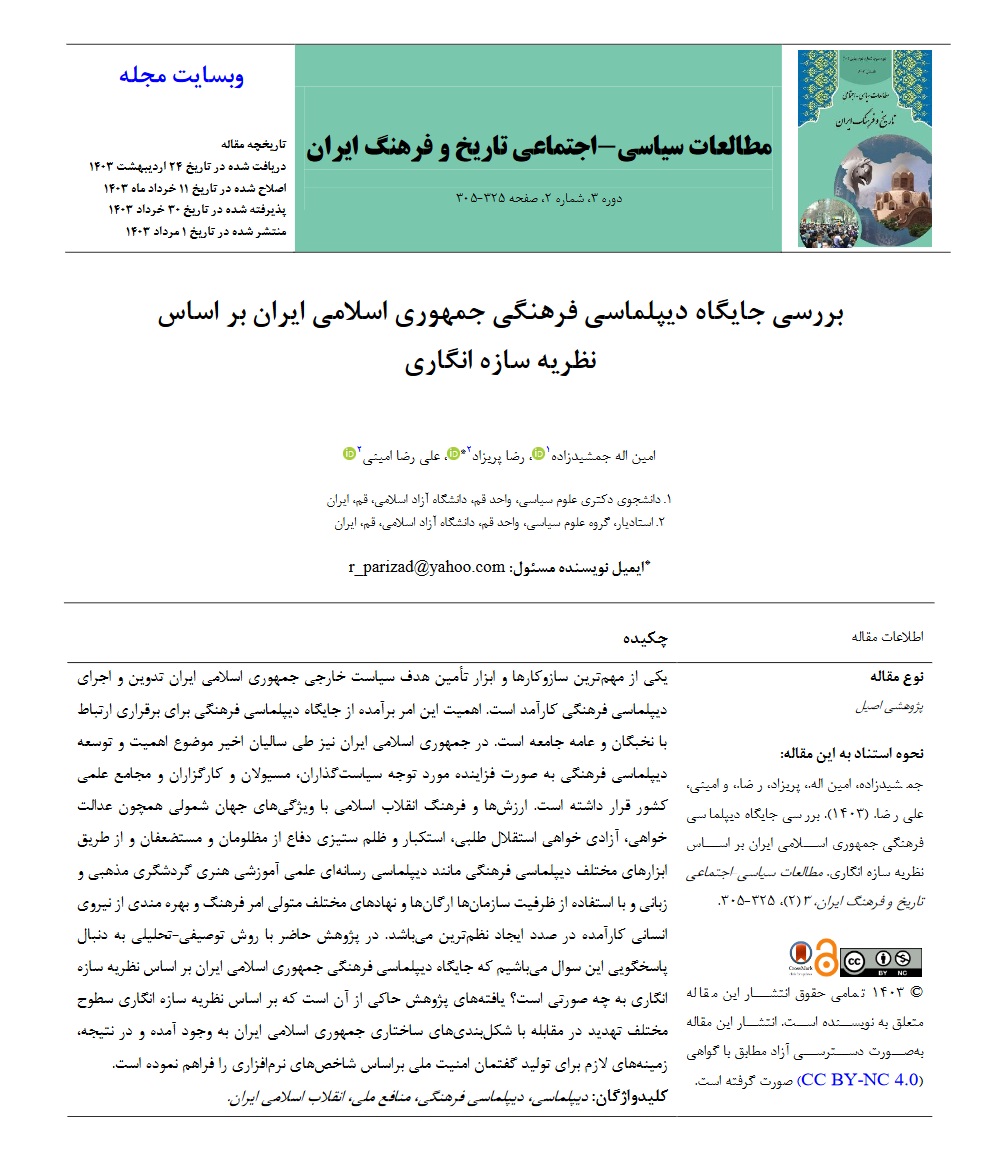Examining the Status of Cultural Diplomacy of the Islamic Republic of Iran Based on Constructivist Theory
Keywords:
Diplomacy, Cultural Diplomacy, National Interests, Islamic Revolution of IranAbstract
One of the most crucial mechanisms and tools for achieving the objectives of the foreign policy of the Islamic Republic of Iran is the formulation and implementation of effective cultural diplomacy. The importance of this matter stems from the role of cultural diplomacy in establishing communication with both elites and the general public. In recent years, the significance and development of cultural diplomacy have increasingly attracted the attention of policymakers, officials, agents, and academic circles within the Islamic Republic of Iran. The values and culture of the Islamic Revolution, characterized by universal features such as the pursuit of justice, freedom, independence, anti-imperialism, opposition to oppression, and defense of the oppressed and the downtrodden, aim to establish order through various tools of cultural diplomacy. These tools include media diplomacy, scientific, educational, artistic, tourism, religious, and linguistic diplomacy, leveraging the capacities of various organizations, institutions, and entities responsible for cultural matters, and utilizing an efficient workforce. The present study employs a descriptive-analytical method to address the question: What is the status of the cultural diplomacy of the Islamic Republic of Iran based on constructivist theory? The findings of the research indicate that, according to constructivist theory, various levels of threat have emerged in response to the structural configurations of the Islamic Republic of Iran, thereby creating the necessary conditions for the production of national security discourse based on soft power indicators.
Downloads







